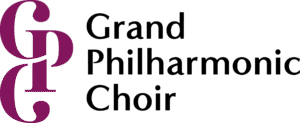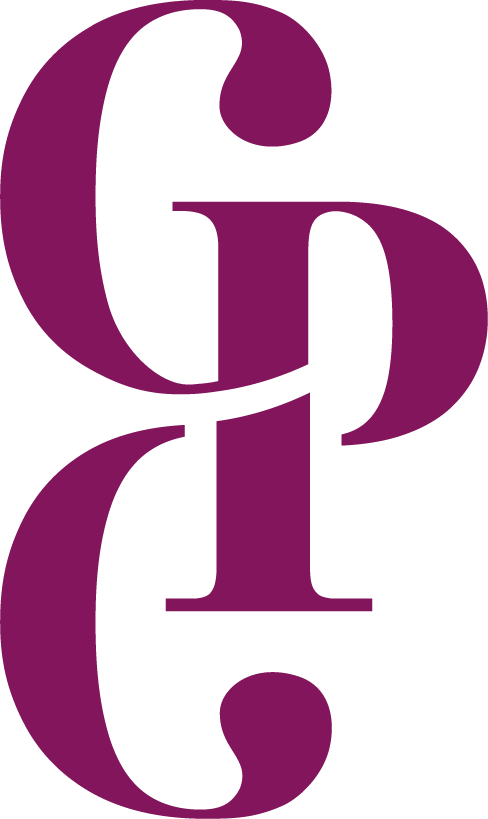The Grand Philharmonic Choir’s family of choirs treats equity, diversity, and inclusion with the utmost care, as notions of belonging and inclusivity are necessary keystones in any successful choral environment. We strive to create a community that is inclusive and respects the dignity of every person, where everyone, regardless of gender, age, sexual orientation, race, religion, physical ability, or cultural background, is welcomed and feels accepted.
To that end, we prioritize and take seriously the experiences and feedback from our choristers and the wider community, and commit to examining those aspects of our work that hinder meaningful participation. These commitments range from making more obvious changes, such as ensuring that performance spaces are accessible by public transit, to those that require rigorous self-examination, like the unconscious attitudes we hold that may nevertheless lead to excluding
or isolating certain people or groups.
Bound by our common love of choral music, we recognize that maintaining a welcoming, inclusive community requires listening, learning and adjustment, and we are committed to that journey of continual improvement and change.
Definitions:
Diversity
Diversity includes all of the ways in which people differ, such as race, ethnicity, gender, age, sexual orientation, socioeconomic status, and language.
Celebrating diversity means understanding and valuing those differences and how each person contributes to the good of the community.
Equity
Whereas diversity is about the many ways in which people differ, equity is about creating fair access, opportunity, and advancement – a fair playing field – for all of those different people.
Equity, unlike equality, is not about the sameness of treatment. Equitable outcomes often require differential treatment in order to overcome barriers to fair access, opportunity, and advancement.
Inclusion
An inclusive community is one where everyone is welcomed, respected and supported and where every voice is valued.
An inclusive community embraces human differences as strengths, and creates a culture of belonging by actively inviting the participation of everyone.
Our work
We continuously strive to take our principles of equity, diversity and inclusion and translate them into practice. Here are some of those practices:
Repertoire and concerts:
Our core mandate is the performance of the great choral works of Western culture, such as Handel’s Messiah and Bach’s Passions.
However, we continue to reach beyond these works and include works that speak to the profound issues facing us today, such as the climate crisis and the threat of war.
We are committed to amplifying diverse voices, and commissioning new works by contemporary composers, including Indigenous composers.
Examples include:
The world premiere, in March 2025, of a new work about the phases of the moon and their interplay with nature. pīsimwak – Moons II was created by locally-based Métis composer Karen Sunabacka, who is known and respected across Canada. The choir commissioned this work with the support of Waterloo Region Community Foundation
The Houses Stand Not Far Apart: This performance in 2008, 2015 and 2023 of this commissioned work by Canadian composer John Estacio is an eloquent plea for peace and understanding. The Grand Philharmonic Choir was one of four choirs that commissioned the work.
Water: The Grand Philharmonic Choir is scheduled to perform this brand-new work, composed by Stephanie Martin with lyrics by Paul Ciufo, in May 2023. This powerful work took shape with the guidance of an Indigenous adviser, Vicki Monague. It is the story of a community’s work to protect this precious resource. Our children’s and youth choirs will join with the adult choir to give the world premiere of this work at Centre In the Square. This concert is our grand finale for our 100th anniversary season in 2022-23.
Take This Thread: In 2021, we premiered this short work, commissioned by the Grand Philharmonic Choir with assistance from the Canada Council for the Arts. Composer Katerina Gimon and poet Lauren Peat created a song about the pandemic and its effect on our relationships. This work was premiered online in June 2021 by 160 singers in four choirs, from Edmonton, Waterloo Region, St.-Lambert, near Montreal, and Halifax. The first live performance was given in May 2022 by the Grand Philharmonic Choir.
Considering Matthew Shepard: The choir’s Chamber Singers ensemble joined with the University of Waterloo Chamber Choir in 2018 to give the Canadian premiere of this remarkable oratorio. It is about the murder of a young gay man in Wyoming, whose story raised awareness of hate crimes and rallied human-rights advocacy. Performed with projected images and props that animated the performance, this work instilled hope, compassion and inspiration.
Annelies: This deeply moving work by James Whitbourn was performed in 2016. It is a setting of the diary of Anne Frank, the Jewish girl who hid from the Nazis, was betrayed, and died in the Bergen-Belsen concentration camp in 1945. With this performance, the choir connected with the Jewish community. We also performed excerpts the week before in a free concert at the Kitchener Public Library. We partnered with the Anne Frank Centre for Mutual Respect, a nonprofit group based in New York City, to provide informational exhibits on Anne Frank’s life and times; these were displayed at the library and at the concert over a month-long period.
Declaration: This new commissioned work by John Burge received its world premiere in 2011 by the Grand Philharmonic Choir at Centre In The Square, Kitchener. It is based on the Declaration of Human Rights of the United Nations and included a sound collage of children reading articles of the UN Declaration of Human Rights in many languages, which was played through the sound system as the audience entered the Centre in the Square. Exhibits in the lobby taught audience members about the Declaration.
Diversity among musicians and other professionals with whom we engage:
Increasingly, our soloists identify as racialized, LGBTQ and nonbinary.
There is a continuing commitment to consider these factors as we choose the professionals with whom we engage.
Programme notes:
Some of the works that we regularly perform are culturally and historically problematic (for example, anti-Semitic sentiments in works like the St John and St Matthew Passions). The programme notes address these issues and give some context for the historic challenges they present.
Representation:
We strive for diversity in the way the choir is represented in marketing materials, on social media and in our official photography and video. Diversity in representation is important because it signals that all are welcome in our organization.
Uniforms:
Our choir uniforms are rapidly moving away from a rigid binary male/female model, and are evolving to become more comfortable for, and inclusive of, a variety of gender representations and comfort levels — all while maintaining a uniform appearance.
Our uniforms are also evolving away from an expensive ensemble where everyone is dressed exactly alike, to a model where singers put together most of their choir dress outfits themselves, within certain prescribed parameters of appearance. This increases singers’ comfort levels, and means the uniform can be acquired inexpensively.
Access for people on low incomes and who are not traditional concert-goers:
We have a policy that no singer in any of our choirs is denied access because of inability to pay membership fees and donations.
We ensure that our rehearsal, performance and outreach venues are accessible by public transit, or we arrange transportation for all.
Tickets to our events have pay-what-you-can options for low-income people and $10 for high school students
Our outreach events are free and open to the public; they include public singing events that are open to everyone regardless of skill/experience; free performances at public libraries. Other free performances have included: benefit concerts (with a freewill offering) to raise funds for victims of disasters overseas; performances in public wooded areas and parks; performances at nursing homes; performances for public vigils when massacres and other tragedies take place; performances in free locations like the public library, shopping malls, and public events such as the German Christmas Market (Christkindl Market) in downtown Kitchener.
Access for people with exceptionalities:
Our choirs include singers who are blind, who live with autism, who are experiencing serious illnesses and who have life-threatening allergies.
Our policy is to provide for these singers to be accommodated as much as possible, working with our resources and technology.
Our staff are trained to work with audience members with dementia.
All our performance and rehearsal venues are accessible to people with mobility restrictions. The Centre In The Square, which houses more of our concerts than any other venue, has technology and special accommodations for patrons with visual and hearing impairment.
Our anti-discrimination and other relevant policies:
All our employees, contracted musicians and volunteers, including singers, are protected by our policy guarding against discrimination, harassment and violence, and by our anti-bullying policy.

